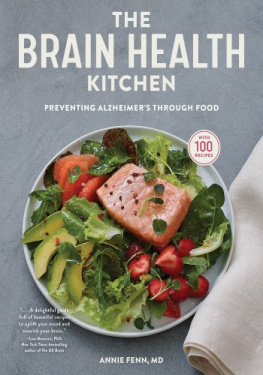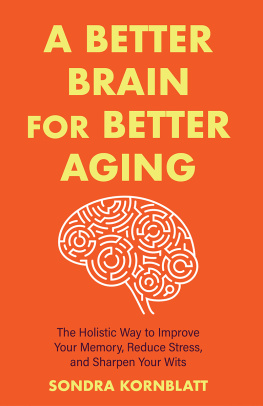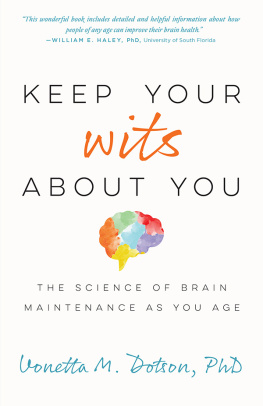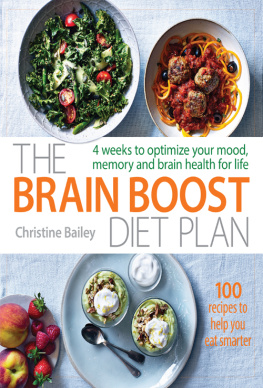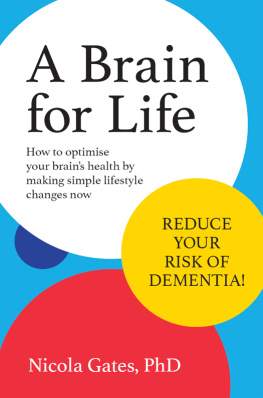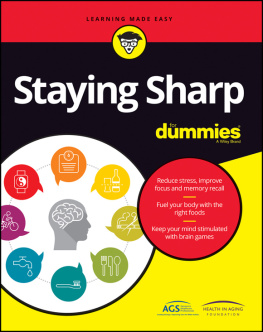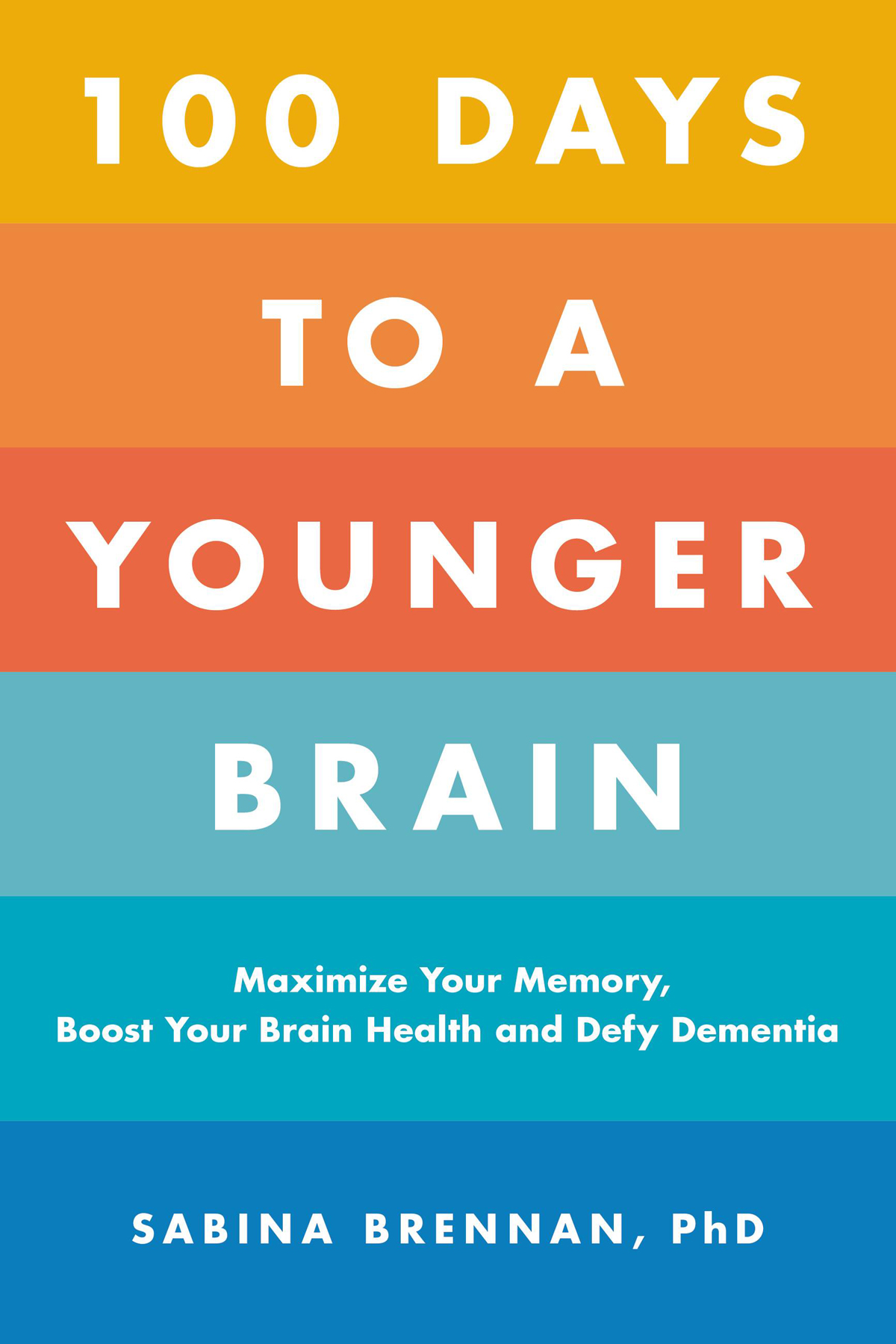The information in this book is true and complete to the best of our knowledge. This book is intended only as an informative guide for those wishing to know more about health issues. In no way is this book intended to replace, countermand, or conflict with the advice given to you by your own physician. The ultimate decision concerning care should be made between you and your doctor. We strongly recommend you follow his or her advice. Information in this book is general and is offered with no guarantees on the part of the authors or Hachette Books. The authors and publisher disclaim all liability in connection with the use of this book. The names and identifying details of people associated with events described in this book have been changed. Any similarity to actual persons is coincidental.
Many of the designations used by manufacturers and sellers to distinguish their products are claimed as trademarks. Where those designations appear in this book and Hachette Books was aware of a trademark claim, the designations have been printed in initial capital letters.
Copyright 2020 by Sabina Brennan
Cover design by Terri Sirma
Cover copyright 2020 Hachette Book Group, Inc.
Hachette Book Group supports the right to free expression and the value of copyright. The purpose of copyright is to encourage writers and artists to produce the creative works that enrich our culture.
The scanning, uploading, and distribution of this book without permission is a theft of the authors intellectual property. If you would like permission to use material from the book (other than for review purposes), please contact permissions@hbgusa.com. Thank you for your support of the authors rights.
Hachette Books
Hachette Book Group
1290 Avenue of the Americas, New York, NY 10104
www.HachetteBooks.com
Twitter.com/HachetteBooks
Instagram.com/HachetteBooks
First Edition: January 2020
Published by Hachette Books, an imprint of Perseus Books, LLC, a subsidiary of Hachette Book Group, Inc. The Hachette Books name and logo is a trademark of the Hachette Book Group.
The Hachette Speakers Bureau provides a wide range of authors for speaking events. To find out more, go to www.hachettespeakersbureau.com or call (866) 376-6591.
The publisher is not responsible for websites (or their content) that are not owned by the publisher.
Library of Congress Control Number: 2019953839
ISBNs: 978-0-306-84648-9 (trade paperback); 978-0-306-84647-2 (ebook)
E3-20191202-JV-NF-ORI
To David, for everything.
100 Days to a Younger Brain delivers, in clear everyday language, the basics on how your brain works and how you can keep it healthy, and shares the good news that you can boost brain health and change your brain at any age. As you work through this life-changing program, you will complete a series of assessments to show you a clear picture of the current state of your brain health and give you insight into what you are doing right and what needs fixing.
Whether youve come to this book because you are concerned about your memory, you fear getting dementia, or simply value your brain and want to look after it, you will find an abundance of practical tips within these pages that can easily be incorporated into your daily life. These down-to-earth suggestions will help to rejuvenate your brain, optimize memory performance, boost brain health, and even build resilience to allow your brain to cope with or compensate for aging, injury, and diseases that affect the brain, including dementia.
Your brain is fundamental to who you are and it supports you in the things you do each and every day. Brain health is not a passing fad and, once you think about it, its quite astonishing that up to now we have essentially excluded our most complex, and most important, organ from our health-care routines.
This is not a book about being brainy but it is a book about being smart enough to invest in brain health. We talk about physical health and we talk about mental health. We even talk about dental health and heart health. It just seemed crazy to me that no one was talking about brain health. After all, you need your brain for everything. There isnt one thing that you can do without your brain. Just as you invest time every day in dental health, I hope that this book inspires you to do at least one thing every day to boost your brain health.
I didnt go to university until I was forty-two. Six years later I emerged with a degree in psychology, a PhD, and a passion for brain health. As a cognitive neuroscientist and a director of a dementia research program in the Institute of Neuroscience at Trinity College Dublin, I was involved in, surrounded by, and exposed to incredible brain research. Thanks in no small part to amazing advances in brain-imaging technology, scientists are making phenomenal progress in terms of our understanding of brain function and diseases that affect the brain.
But something troubled me. Scientists were doing great work but they spent much of their time talking to other scientists about their research at niche conferences and in academic journals, most of which are inaccessible to the general public. Of course, this kind of academic discourse is absolutely essential for scientific progress, but the scientific literature and research on brain health and dementia can be complex and not easy for everyone to follow. Thats why Ive written this book. It translates scientific jargon into easy-to-understand, practical information to improve your brain health.
100 Days to a Younger Brain will show you how to hold on to important functions like memory into old age. Adopting a brain-healthy lifestyle is like investing in brain capital; by making smart choices you can build reserves that you can cash in at some point in the future when faced with a challenge such as aging, injury, or disease.
Lets take Alzheimers disease. compared to a healthy brain and is characterized by cell death and tissue loss. Nobody knows for sure what causes this cell death, but abnormal protein clusters called plaques and twisted strands of another protein called tangles are currently the prime suspects.
Youd be forgiven for thinking that having these plaques and tangles in your brain would mean that you would have the symptoms that we commonly associate with dementiasuch as memory loss and confusion. But you would be wrong. You can have the disease in your brain and not experience symptoms! And that more than anything inspired me to write this book.
Let me explain. We know from research that the brains of up to 25 percent of people who have sufficient pathology for a diagnosis of Alzheimers disease post mortem are clinically intact before death. About one in four people with the pathology in their brain are resilient to the disease. This means that even though they had the disease, the plaques and tangles, they had no perceptible symptoms. In fact, they remained coherent and continued to function as normal up until they died.
We call this resilience reserve. Your brain has the capacity for resilience, too, provided you give it a helping hand by adopting a brain-healthy lifestyle. Whats more, you can replenish these reserves across your lifespan.
Consider for a moment Jake and Peter, two fifty-five-year-old men. Jake has high reserve (high resilience) and Peter has low reserve (low resilience). Both begin to develop the pathology of Alzheimers disease in their brains at the same time. For illustrative purposes, lets say that both die at the age of seventy-five.


